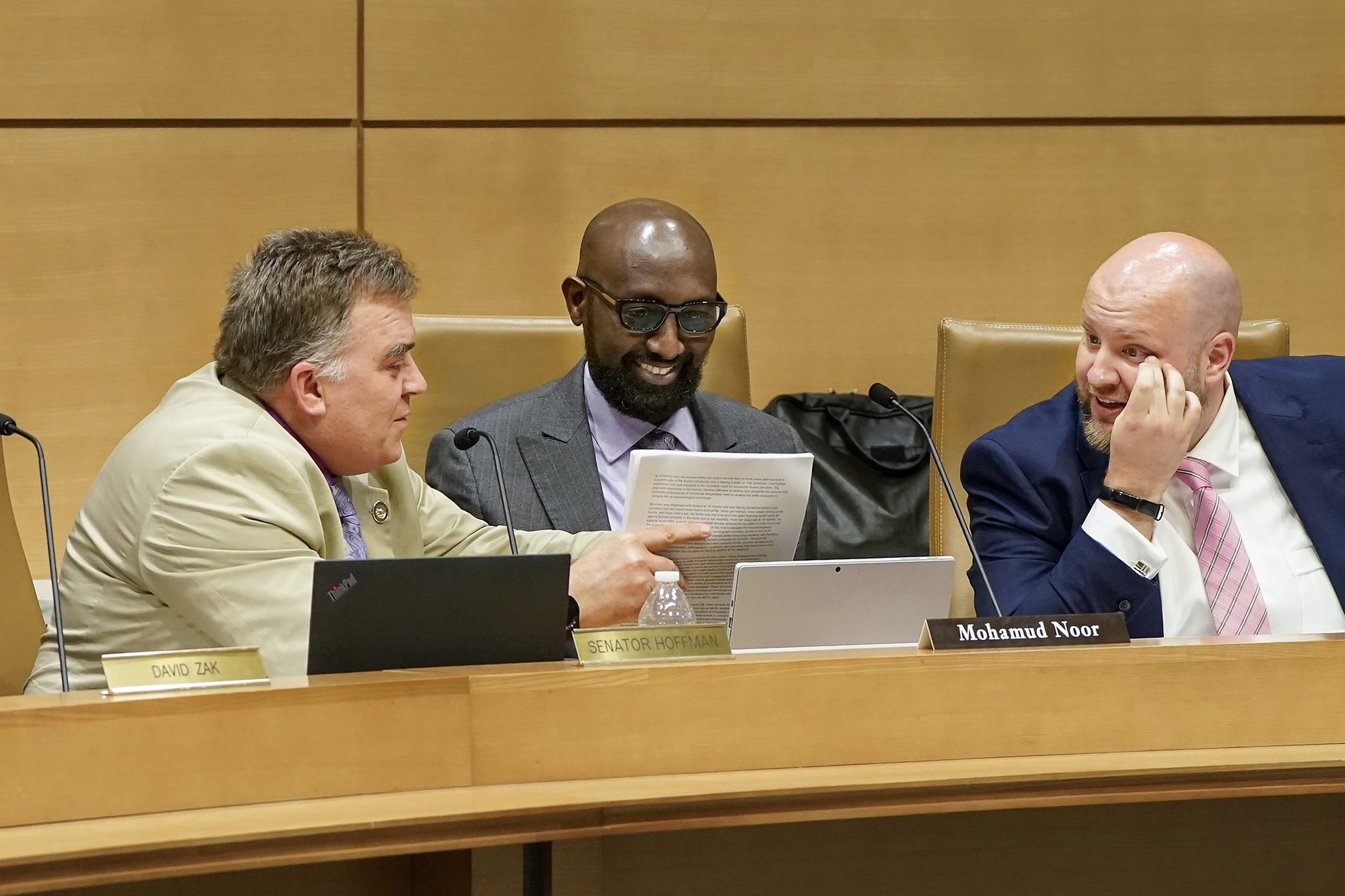Legislators finalize $16.8 billion human services budget deal

A big piece of the puzzle to the state budget has been put together.
The human services working group came to an agreement on the second largest budget bill in the state budget and presented it to the public on Thursday.
“This is, of course, a work of compromise. That's what voters always ask us to do when we're up here,” said Rep. Joe Schomacker (R-Luverne), co-chair of the House Human Services Finance and Policy Committee. “This is probably a bill that many of us have provisions in that we can agree with and many provisions that we can agree to, but nothing that any of us would put forward as our own in the end there, but this is what compromise is and this is what it looks like.”
“This was not easy. This has been a difficult bill from the beginning,” said Rep. Mohamud Noor (DFL-Mpls), co-chair of the House Human Services Finance and Policy Committee.
Accounting for over 40% of the state’s budget, the $16.8 billion budget meets the $270 million cut that was called for in the global budget agreement put forth by legislative leaders and Gov. Tim Walz.
“This bill is better than it used to be but ultimately we will still be worse off than we are right now,” said Rep. Brion Curran (DFL-White Bear Lake). “The budget cuts that we were given, the targets we were given to work with are still bad. This was a tough task, and we accomplished what we were told to do. What we were told to do is awful.”
The human services agreement presented Thursday was based on the regular session’s omnibus human services finance bills, HF2434/SF3054.
[MORE: View spreadsheet, agreement]
Most of the $270 million cut comes from capping the Disability Waiver Rate System at an annual rate of 4% of the Consumer Price Index. That move saves around $200.65 million in the next biennium.
Some other large cuts include $57 million from the nursing facility surcharge, $52 million on rate exceptions, $42 million in grant reductions, $41 million in nursing facility payment system changes, $23 million on daily hour cap on Individualized Home Supports with training services, $23 million on night supervision service asleep rate, $16.7 million in inpatient competency attainment exam liability, and $15.4 million on Waiver Authorization reform.
[MORE: Written testimony, more written testimony]
But it wasn’t all cost-cutting. Legislators increased the funding to the Self-Directed Worker Bargaining agreement and Direct Care and Treatment operating adjustment by $70 million each, modified nursing facility payment rates by $17.5 million, established a provisional Early Intensive Developmental and Behavioral Intervention provider license and increased administrative oversight by $11 million, and modified payment rates for certain substance use disorder treatment services by $9 million.
Some new provisions in the bill would:
- provide a Jan. 1, 2026 effective date for nursing facility consolidation rates;
- establish a long-term services and supports advisory task force to advise and assist the Legislature and governor to reduce cost growth in long-term services;
- require the Direct Care and Treatment executive board to publish a referrals and admissions dashboard on the website;
- establish a Priority Admissions Review Panel;
- require the commissioner to immediately approve a limited exception for up to 10 civilly committed patients per year in hospital settings to be added to the Direct Care and Treatment admissions wait list, until June 30, 2027; and
- change terminology from “emotional disturbance” to “mental illness” throughout Minnesota statutes.
Related Articles
Search Session Daily
Advanced Search OptionsPriority Dailies
Legislature — with budget incomplete — gavels out, prepares for special session
By Rob Hubbard Some years, state legislative sessions surge to a climax on their final day, a flurry of activity providing a sustained adrenaline rush, culminating in smiles of satisfaction as...
Some years, state legislative sessions surge to a climax on their final day, a flurry of activity providing a sustained adrenaline rush, culminating in smiles of satisfaction as...
Walz, lawmakers strike budget deal in session's final days
By Lisa Kaczke With five days to go in the 2025 session, three of four legislative leaders announced a budget agreement Thursday that would sunset unemployment insurance for hourly school empl...
With five days to go in the 2025 session, three of four legislative leaders announced a budget agreement Thursday that would sunset unemployment insurance for hourly school empl...